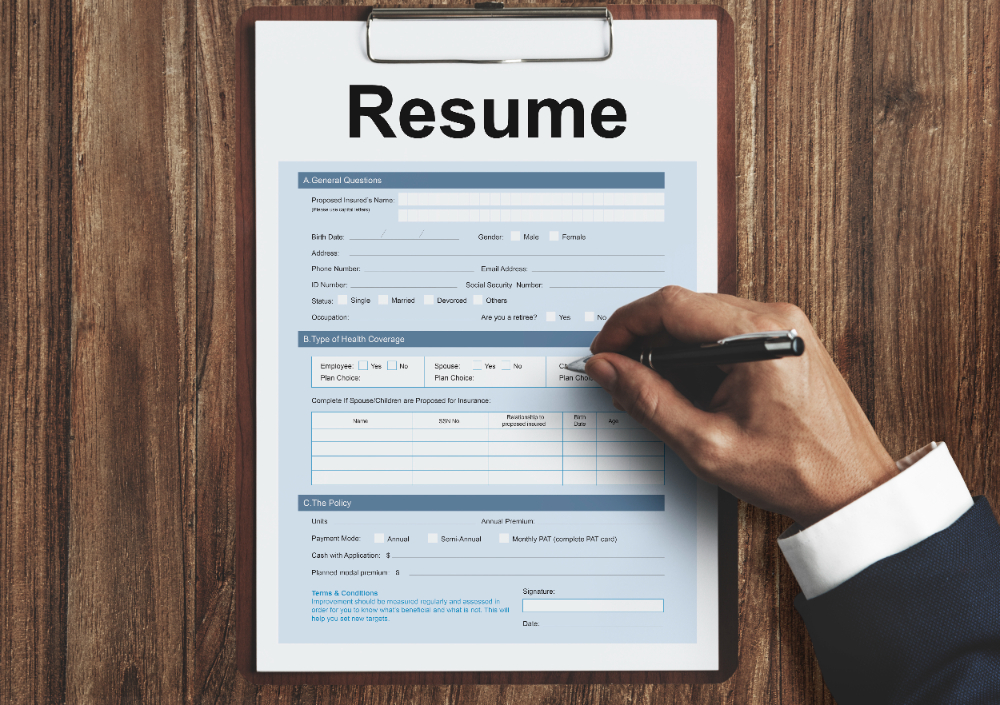Now that you’ve even announced your completion of graduation on your social media, it’s time for the next venture – finding a job as a fresher.
You have a lot of companies in mind, and you even got in touch with a few. You’re doing everything right but there’s one thing coming in the way of landing fresher jobs – ‘fresher with one-year experience’. For every posting of fresher-specific job role, employers end up wanting someone with a little experience anyway.
So, how do you overcome this paradox of an ‘experienced fresher’?
It is not an impossible feat, and you can take certain steps to get a job without any prior professional experience.
Tips on How to get a Job as a Fresher

1. A break helps
Give yourself just a few days to unwind from your recent sleepless exam nights before getting onto your job hunt right away. It is essential for you to come back to a fully rested and refreshed mental state in order to think and prepare well for what’s coming next.

2. List your strengths
Focus on what abilities you have recognised in yourself over your academic years. Write down a list of soft skills or personal traits that you see in yourself. It could be anything such as the ability to communicate, verbally or through writing, or the skill to lead a group project.
These are reflected in your resume as the skills needed to work in a professional environment, as an individual professional as well as a team member.
3. Seek help building your resume
Sometimes, trying to dig out your skills and abilities can be quite confusing, and more so for someone trying to look for jobs as a fresher.

This is where your close friends or family can help. Ask them to tell you what they see as your strong points and your weaknesses. You’ll be surprised to see yourself from their perspective, and find out more about you than you thought you knew.
Also Read: Know How to Write Your First Professional CV
4. Online job boards
You can also get professional services for building your resume, from online job boards and portals where you can register yourself. These platforms allow you to search for the jobs you are looking for, filtering searches by posting date, experience, role, industry and location.
You can have your resume and profile boosted for better search results among recruiters, learn tips and tricks to improve your interview skills, and get advice specific to industries and roles, and even other aspects of the professional lifestyle.
5. Make the most of your networking skills
Living in the age of the internet and social media, it is imperative to have a network online. While professional networking sites such as LinkedIn are purely meant for career-oriented connections, even your social networking platforms have dedicated groups and pages for you to connect with people for professional opportunities.

Organisations give employee referrals more preference than you might think. And more often than not, employees get a referral bonus too. So, don’t shy away from approaching a friend or friend’s friend, for you might actually be providing them an unexpected bonus.
Also Read : Networking: Using Facebook and Twitter to Find Your Next Job
6. Research your employer
If you were to consider someone to work with you, you would naturally expect them to show some interest in you, right? Almost every interviewer asks you what you know of the company, and it definitely looks bad if you have no idea.

Yes, you might be applying to multiple companies and remembering everyone’s details is difficult. But, as a fresher, having a keen interest in the company coupled with a passion to prove your worth are sure ways to make a good impression on the employer.
It also helps if you customize your resume for specific roles/companies that you apply for.
7. Align your skills with the company goals
So, you already listed out your skillset in your resume, and the interviewer has already seen it. Instead of repeating that during your interview, you can describe how your skills can be utilised to make an impact at the workplace.
Highlight any achievements that are relevant to your role. You can cite examples of projects, assignments or volunteer work where you might have delivered actual results, therefore, proving how you can add value to your potential employer.
8. It’s either a good overview or it’s over
Your resume only gets about 5-6 seconds before the recruiters move onto the next one. With such a small window, your overview is your best chance at grabbing your recruiter’s attention.
Make it as crisp and to the point as possible, providing a comprehensive view of your purpose. This may sound intimidating, but nothing that a simple research on the internet won’t resolve.
Also Read : Should You Negotiate Your First Salary
9. Knowing your worth vs. negotiating your salary
Earning your own money is one of the best things you look forward to as part of entering the professional life. While most companies have a fixed starting salary range for fresher jobs, some might be open to a little negotiation.
But, before you think of negotiating, you must be aware of the industry range for your role. You can compare salaries for fresher roles in your industry from professional sites.

If you think your offer is quite less than the standard range, you can put forth your case based on your research.
Speak to them how you can be effective in the role and convince them that you deserve more than what is being offered.
Also Read : How to Answer 10 Most Common Interview Questions
10. Prepare for your interview – before and after
There are loads of questionnaires specific to job roles, where you can prepare for expected interview questions. But, your best learning comes from the actual interview.

Even if you don’t get to the next round, you now have live experience. Revisit your interview, study what your body language was, re-answer the interviewer’s questions, and refine your resume.
11. Go high collar, go confident
What you wear makes a significant impact on your first impression score. Before you start communicating and interacting with the interviewer, your choice of clothing reflects your attitude towards the interview.
Depending on your role and industry, go for a formal or semi-formal outfit. For example, while most roles demand you dress in formals, for interviews with firms like an advertising agency, casual wear is actually more appropriate. But, no matter where you’re interviewed, don’t forget to wear confidence.
Also Read : Interview Dress Code
FAQ on Job Search Tips For Freshers
Q1 How can freshers search job in a competitive job market?
Tailor your resume to the job, showcase relevant skills and projects, and network through online platforms to create a strong professional presence.
Q2 Is it beneficial for freshers to apply for internships while job searching?
Yes, internships provide valuable experience, build your resume, and can lead to full-time opportunities. They also demonstrate your commitment to learning and growth.
Q3 How important is networking for freshers during a job search?
Networking is crucial. Attend industry events, connect with professionals on LinkedIn, and seek informational interviews. Personal connections often open doors to hidden job opportunities.
Q4 How should freshers prepare for job interviews?
Research the company, practice common interview questions, and develop concise yet impactful responses. Showcase your enthusiasm, willingness to learn, and how your skills align with the job requirements.
Q5 Should freshers consider entry-level positions in different industries?
A: Exploring various industries can broaden your skill set. While focusing on your preferred field is ideal, being open to related opportunities can lead to valuable experiences and unexpected career paths.




